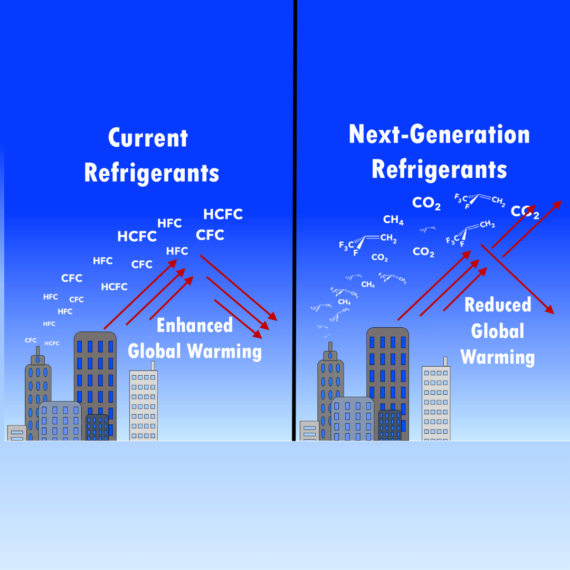
Impact of E-Waste on Climate Change
We all love our gadgets. Phones, laptops, tablets—they’re windows to the world, productivity powerhouses, and gateways to endless entertainment. But what happens when these devices become old, slow, or we no longer need them? They often end up as electronic waste, contributing to climate change.
This growing stack of discarded electronics, known as e-waste, poses a significant environmental challenge. Millions of outdated electronics are thrown away each year, leaking hazardous substances into our soil and waterways and releasing harmful gases into the atmosphere. Despite the severe impacts, only a tiny portion of e-waste is recycled or reused correctly. In this blog, we will discuss the impact of e-waste on climate change and explore how the mismanagement of electronic waste contributes to environmental degradation and exacerbates global warming.
Greenhouse Gas Emissions from Decomposition and Incineration
• Landfill Decomposition:
Electronic waste often ends up in landfills, where it breaks down under anaerobic conditions (absence of oxygen). This breakdown process emits methane, a greenhouse gas far more potent than carbon dioxide in its ability to trap heat in the atmosphere. The plastic components in electronics are primarily responsible for methane emissions during decomposition, directly contributing to the enhanced greenhouse effect and global warming.
• Incineration:
Incinerating e-waste is another disposal method that directly contributes to atmospheric CO2 levels. While incineration can reduce the volume of waste, it often releases considerable amounts of CO2 because many electronic waste components, like plastics and other carbon-based materials, combust. Additionally, incineration can emit other harmful pollutants, including nitrogen oxides (NOx) and sulfur dioxide (SO2). These pollutants have indirect climate impacts, such as acid rain formation and participation in smog, which can also affect the climate by altering the Earth’s albedo (reflectivity).
Leakage of Refrigerants and Other GHGs

Electronic devices that use cooling technologies, such as refrigerators and air conditioners, often contain hydrofluorocarbons (HFCs) or older chemicals like chlorofluorocarbons (CFCs) and hydrochlorofluorocarbons (HCFCs), all of which are greenhouse gases with high global warming potentials. Improper disposal or damage to these devices can result in leaks of these refrigerants into the atmosphere. The release of such chemicals contributes directly to the greenhouse effect, significantly impacting global warming due to their potency as greenhouse gases.
Release of Toxic Chemicals and Secondary Pollutants
• Heavy Metals and Persistent Organic Pollutants (POPs):
E-waste contains various heavy metals, such as lead, mercury, and cadmium, along with persistent organic pollutants, including polybrominated diphenyl ethers (PBDEs), which are used as flame retardants. When e-waste is improperly processed or disposed of, these substances dilute into the soil and water systems or are released into the atmosphere. The transformation of these chemicals under environmental conditions can produce secondary pollutants that also act as greenhouse gases, thus contributing further to climate change.
• Dioxins and Furans:
Burning electronic waste can lead to the formation of dioxins and furans, which are highly harmful and can persist in the environment for long periods. These compounds are produced during the combustion of chlorine materials and are commonly found in various electronic devices. Besides their severe health impacts, dioxins and furans contribute to environmental pollution. They can indirectly affect climate systems by traveling long distances and depositing on surfaces, potentially altering the thermal balance of the Earth.
Resource Depletion and Energy Use in New Production
• Intensive Mining and Resource Extraction:
The demand for new electronics drives extensive mining operations to extract metals such as gold, silver, copper, and rare earth elements. These mining processes are highly energy-intensive and result in substantial greenhouse gas emissions. Additionally, the degradation of landscapes and ecosystems from mining operations contributes to a decrease in the earth’s natural carbon sequestration capabilities.
• Manufacturing Emissions:
The actual production processes of electronic devices also contribute to greenhouse gas emissions. These processes are energy-intensive, relying mainly on fossil fuels and emitting a range of greenhouse gases, including CO2, methane, and fluorinated gases. The energy consumption and emissions associated with manufacturing new electronics are significant when considering the full lifecycle impact of these devices on climate change.
• Glacier Melting
One of the less discussed but equally alarming consequences of e-waste is its contribution to glacier melting. Electronic devices often contain persistent organic pollutants (POPs) like polychlorinated biphenyls (PCBs) and polycyclic aromatic hydrocarbons (PAHs), as well as heavy metals like mercury and lead. These pollutants can travel long distances through the atmosphere, eventually depositing onto glaciers through processes like atmospheric deposition and snowfall. Once deposited, these contaminants can accelerate glacier melting by reducing the albedo, or reflectivity, of the glacier surface. Darker pollutants absorb more sunlight, causing the ice to melt faster. Additionally, the release of toxic chemicals into glacier meltwater can have severe implications for ecosystems and human health downstream.
Conclusion
The environmental and climatic implications of e-waste are extensive, influencing global warming through various direct and indirect channels. Effective management and recycling of e-waste are crucial to mitigate its negative impacts on the climate. By adopting robust e-waste management practices, promoting sustainable production, and enhancing recycling technologies, we can address these environmental challenges and move towards greater sustainability and reduced climate impact.
Read Our More Blogs:
Importance of Corporate Social Responsibility in E-Waste Management
10 Benefits of Using an E-Waste Pick-Up Service for Businesses







